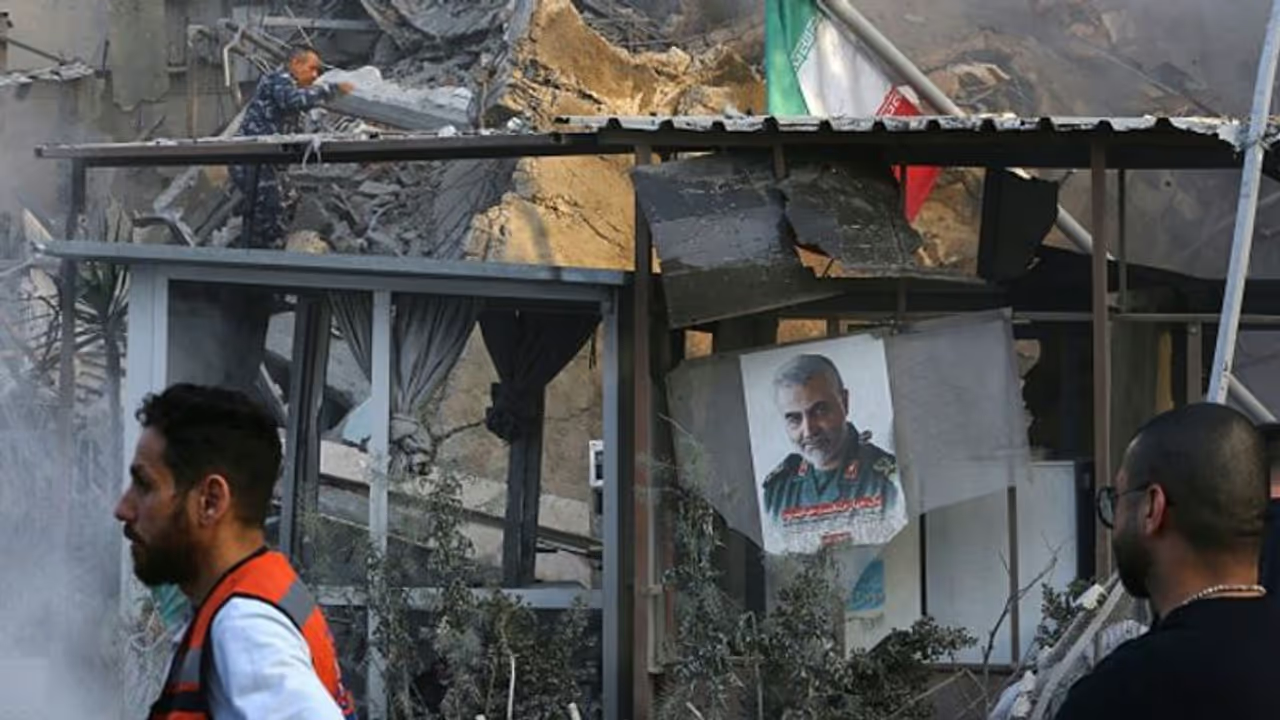The US Central Intelligence Agency (CIA) has reportedly issued a warning to Israel, indicating that Iran may be preparing to initiate a significant military action within the next 48 hours.
The US Central Intelligence Agency (CIA) has reportedly issued a warning to Israel, indicating that Iran may be preparing to initiate a significant military action within the next 48 hours. This potential retaliation stems from an apparent Israeli airstrike that resulted in the destruction of an Iranian consulate in Syria, claiming the lives of numerous Iranian officials and generals. Iranian leaders, including President Ebraham Raisi, have vowed to respond to the attack, emphasizing that it will not go unanswered.

According to Lt Gen Alexus Grynkewich, the senior US Air Force commander for the Middle East, Washington is worried that the deadly strike in Damascus may lead to other attacks on US forces by militias with Iranian support in Iraq and Syria.
Israel's apparent escalation in its six-month war against Hamas by attacking an Iranian diplomatic station has sparked concerns that the conflict could spread over the whole Mideast area and beyond.
The United States, Britain, and France have opposed a Russian-drafted UN Security Council statement condemning the attack on Iran's embassy compound in Syria. They cited unclear facts surrounding the incident, with Israel yet to claim responsibility for the strike.
The attack, occurring in Damascus, resulted in the deaths of 12 individuals, including senior commanders of Iran's Islamic Revolutionary Guard Corps for Syria and Lebanon, as well as a Hezbollah militia officer from Lebanon. Lt Gen Alexus Grynkewich expressed concern that Iran's attribution of responsibility to the US for Israeli actions could end the hiatus in militia attacks on US forces since early February.
Iran's Islamic Revolutionary Guard Corps (IRGC) confirmed that seven Iranian military advisors, including Mohammad Reza Zahedi, a senior commander in its Quds Force, were among those killed in the strike. Hezbollah expressed condolences for Zahedi's death and criticized Israel, stating that targeting leaders would not halt the people's resistance. Additionally, a Hezbollah member, Hussein Youssef, was also killed in the attack.
Despite the Biden administration asserting it had no prior knowledge of the airstrike on the Iranian consulate, the close ties between Washington and Israel's military are evident. The US continues to be Israel's crucial ally, providing significant military support, accounting for around 70% of Israeli weapon imports and approximately 15% of Israel's defense budget.
Iran's recent broadening of targeted strikes on adversaries, including Iranian security operatives and leaders, has raised concerns among analysts. They suggest that if Prime Minister Benjamin Netanyahu's approach deepens regional hostilities, the US may find it challenging to avoid getting further entangled in the conflict. Various branches of Iran's government have indicated their intention to hold the United States accountable for the attack.
According to reports in the New York Times, current and former US officials view the strike as a strategic setback for Tehran and warn of potential escalation in regional tensions. Ralph Goff, a former senior CIA official with experience in the Middle East, criticized the alleged Israeli strike as "reckless," predicting that it would lead to increased aggression from Iran and its proxies. However, Goff noted that the attack aligns with Israel's strategy to weaken the Islamic Revolutionary Guard Corps (IRGC).
Sabrina Singh, a spokesperson for the Pentagon, reiterated that the US was not involved in the strike and aimed to avoid further escalation. “Tensions being high in the region, we wanted to make it very clear in private channels that the US had no involvement in the strike in Damascus,” she said.
On Wednesday, Iranian leaders reaffirmed their calls for retaliation following the suspected Israeli airstrike. Supreme Leader Ayatollah Ali Khamenei stated that Israel's continued failures on the Gaza battlefield would only hasten its eventual collapse.
“Desperate efforts like the act they committed in Syria will not save them from defeat and they will be slapped for the action, too,” Khamenei was quoted as saying by the official IRNA news agency.
According to media reports, a funeral service for the slain Revolutionary Guard members was performed in Syria at a revered Shiite shrine in Damascus. The principal burial service will take place on Friday in Iran as part of al-Quds Day, an annual pro-Palestine demonstration.
Israel's targeting of Iranian military leaders and their allies in Syria looks to be intensifying in light of the bloodiest hit on an Iranian diplomatic post in decades.
After three US servicemen were killed in a drone strike in Jordan in January, Iran-backed militias appeared to be trying to defuse the situation by refraining from striking US bases. The US responded by launching a large airstrike that destroyed over 85 targets at seven locations in Syria and Iraq. These targets included command and control centres, drone and ammunition storage facilities, and other establishments associated with the IRGC or militias.
Israel has reportedly killed multiple IRGC operatives, as well as members of Hezbollah and other Iranian proxy groups, since the war began on October 7. Israel has also increased its strikes on terror sites in Syria and Lebanon that are related to Iran. It has carried out about 25 airstrikes in Syria, resulting in many fatalities.
Amid mounting criticism of US military assistance to Israel during the conflict in Gaza, State Department spokesperson Matthew Miller has emphasized Israel's ongoing requirement for weaponry to counter the threat posed by Iran and its ally, Hezbollah in Lebanon. Israel's historical strategy has involved targeting Iranian proxies and their infrastructure across the region, thereby diminishing their capacity to pose a threat and disrupt the security of Israeli citizens.
